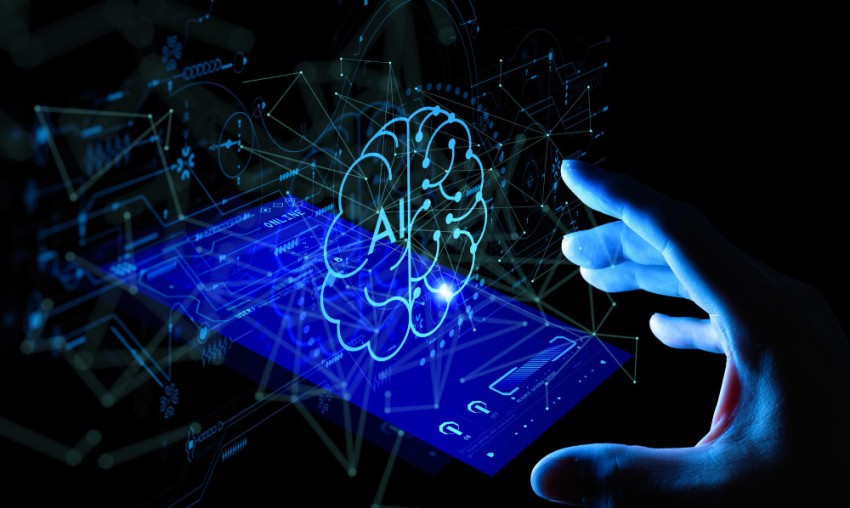- Opening hours : Monday to Friday from 8:30 to 17:00
We use cookies to analyze web traffic. No personal data is collected, and your visit is anonymized to protect your privacy.


ChatGPT's text generator (Generative Pretrained Transformer) is a popular topic among technical professionals. Many of them praise the text generator, while journalists and writers fear it will be replaced by a computer in the foreseeable future.
The latest generation of ChatGPT is incredibly powerful. This super chatbot can perform many functions; from answering questions to understanding texts and suggesting titles, creating tables of contents and creating newsletters. Even writing essays and poetry to computer codes are possible. ChatGPT is a software programme that produces texts using artificial intelligence. As an individual, you enter a question or task and within seconds, the software produces an easy-to-read text in the user's chosen language.
A conversation with ChatGPT therefore feels deceptively real. It predicts the next word in a chat session based on words that are already there. The word predictions are so accurate that one cannot tell when this bot is talking. What makes this artificial intelligence model so unique is that it can keep a conversation going because it can remember previous conversations. It does not forget the original topic and provides relevant answers.
Bots have been around for a long time, but they did not perform nearly as well as ChatGPT. This is due to the fact that it thus has a memory. The ChatGPT database takes information from a wide range of sources from the internet and turns it into a convincing new text that is linguistically similar to the original. It never literally copies any source material, but rather recasts and rewrites the data with appropriate grammar and wording.
Browsers face stiff competition.
For more than 20 years, Google has been the main search engine people use to access the internet. ChatGPT, however, will pose a serious threat to browsing. Or may even be replaced by this personal communication interface. Correlation, but not causation
One should not think that ChatGPT is causally related to what you ask or write.
ChatGPT only looks for patterns that occur regularly in texts and then plays them back. That an algorithm that does not understand words or sentences still produces such good texts was a surprise even to the biggest specialists.
Correlation, but not causation
One should not think that ChatGPT is causally related to what you ask or write.
ChatGPT only looks for patterns that occur regularly in texts and then plays them back. That an algorithm that doesn't understand words or sentences still produces such good texts was a surprise even to the biggest specialists.
Risks of ChatGPT
Fans also claim the more you use it, the more disappointed you will be. Results are sometimes wrong because it doesn't understand the question. The question, "Jan's father has three children Kwik, Kwek and ...?" fails ChatGPT to answer.
The system collects written content in unclear ways and can adopt and even reinforce writers' biases in it.
People thus increasingly struggle to debunk disinformation. A watermark could be added, just as already happens today with translations. Actually, a tool like ChatGPT requires only skilled professionals to operate it. The output produced could then prompt text on a subject one knows inside out.
Professionals working with confidential information, such as doctors, accountants or lawyers, should avoid the system at all costs for their work. Confidential information may end up on the internet and be reused in ways we have no idea about.
Knowledge workers
With cognitive computing, also known as the fourth industrial revolution, it would be knowledge workers who would have to worry about their jobs. Yet knowledge workers are not likely to lose their jobs, but rather shift their focus. This is mainly because ChatGPT cannot reason causally. People will still write critical texts connecting different ideas.
And there is no problem as long as the expert himself ultimately makes decisions.
Artists
Major musicians received dozens of ChatGPT song lyrics from their fans, written in the style of their idols. None of the artists was impressed.
'This song doesn't touch me. Songs are born out of pain (...)' said the artists. 'Algorithms don't put feeling into lyrics, as far as I know. Data doesn't suffer.
There will be a new version of ChatGPT during this year, expectations among users are unrealistically high. 'That's ridiculous,' said Sam Altman of ChatGPT . 'Those people are begging to be disappointed.'
We'll see.
A word about the image above
I asked Open AI DALL-E: Creating Images from Text to paint an image of a consultant with laptop and smartphone, in Roman style, 18th ,19th -century style and Pop art style. In my opinion, the software still interpreted the question reasonably well.
Applications Open AI ChatGPT:
Patrick Geerlings is senior marketing consultant at Tripolis Business Support. Some parts of this text were generated with ChatGPT; these have always been checked for accuracy. As always, Patrick writes his columns in a personal capacity.
0 Comments